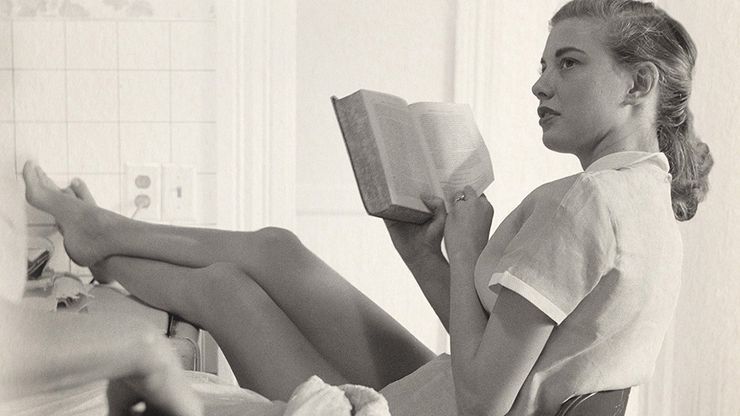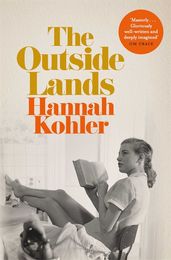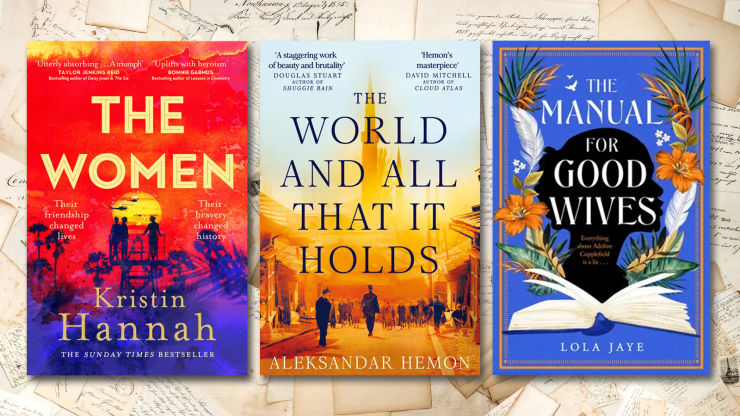How to research a historical novel
Hannah Kohler, author of The Outside Lands, offers some advice to anyone writing, or hoping to write, their own historical fiction.

Historical fiction can be a tricky genre to master. If you haven't done your homework it won't feel authentic but, on the other hand, no one wants to read a novel that feels like a school history lesson.
Here Hannah Kohler, author of The Outside Lands, which takes us from 1960s California to Vietnam, offers some advice to anyone writing, or hoping to write, their own historical fiction.
My first novel, The Outside Lands, is set in 1960s California and Vietnam. When I wrote it, I didn't think of it as historical fiction — the period didn't seem remote enough — although novels set more than fifty years in the past are usually defined as historical.
My second novel, Catspaw, is undeniably historical fiction: it is set in the California Gold Rush of 1849. I'm writing it in the British Library, surrounded by the library's vast and extraordinary North American collections. Shelved away in this soaring building are memoirs that will spark plot ideas, diaries that will inspire character voices, photographs that will help me visualize nineteenth-century America.
But if the library is a novelist's wonderland, it can also be a rabbit-hole — a place you can get lost for days at a time, encountering all kinds of marvels but ending up, like Alice, right back where you started. So how do you strike the balance between research and writing? Here are some things I've learned …
Don't write what you know
Write what you love. You'll be spending a lot of time in this particular historical period, with its strange habits, its ways of speaking and dressing, its appetites and peccadilloes. So make sure you're excited at the prospect of living in your chosen period for a couple of years. Your passion will be felt in the energy of your writing.
Don't know it all
Scientists solve problems by writing down the answer first, then conducting research to test their hypothesis. It's a smart and efficient way of getting to an answer in the face of an overwhelming amount of information. The same approach is invaluable in writing in historical fiction. Don't start with research. Establish your characters and narrative, and then be strategic about what you need to find out. Research as you write.
Less is more
Be ruthless about the research you include in your writing. Don't be tempted to show you've done your homework. We live in an age in which most readers have seen enough movies to have a basic set of visual assumptions about what different historical periods looked like. This means you can be sparing in building the historical setting of your novel. Only include historical details that advance your narrative. As for everything else you've learned — just feel it, sitting in your brain, giving you the confidence to write your story.
Sweat the small stuff… later
Whatever historical details you include, if you're aiming for realism, it's worth getting them right. This is particularly important when you're writing about a period that people remember first-hand: if you muddle your Snickers with your Marathon bars, readers will notice.
Even if you're writing about a remote past, accuracy in the detail — hairspray brands, newspaper headlines — helps create a setting that feels authentic. But sweat the small stuff as late possible —preferably when you're editing the final draft. Otherwise you'll never finish the thing.
But don't chase accuracy too hard
You're writing a work of fiction, not an exhaustive historical account. Research for inspiration. Research for authenticity. But don't chase accuracy so relentlessly that it gets in the way of telling your story. Remember you're dealing in fiction, not fact.
Stop
Disable your internet; put the books away. Your job is to write; and research can easily become just another way to delay writing. So keep research in its place — which is the thing that will inspire you, the thing that will help you create an authentic rendering of the past, but never the thing itself.
Hannah Kohler is currently the Eccles British Library Writer in Residence.
The Outside Lands
by Hannah Kohler
The Outside Lands is the story of people caught in the slipstream of history, how we struggle in the face of loss to build our world, and how easily and with sudden violence it can be swept away. With extraordinary skill and accuracy, Hannah Kohler takes us from 1960s California to Vietnam, capturing what it means to live through historic times. This powerful debut novel announces Kohler as a remarkable new literary talent.



